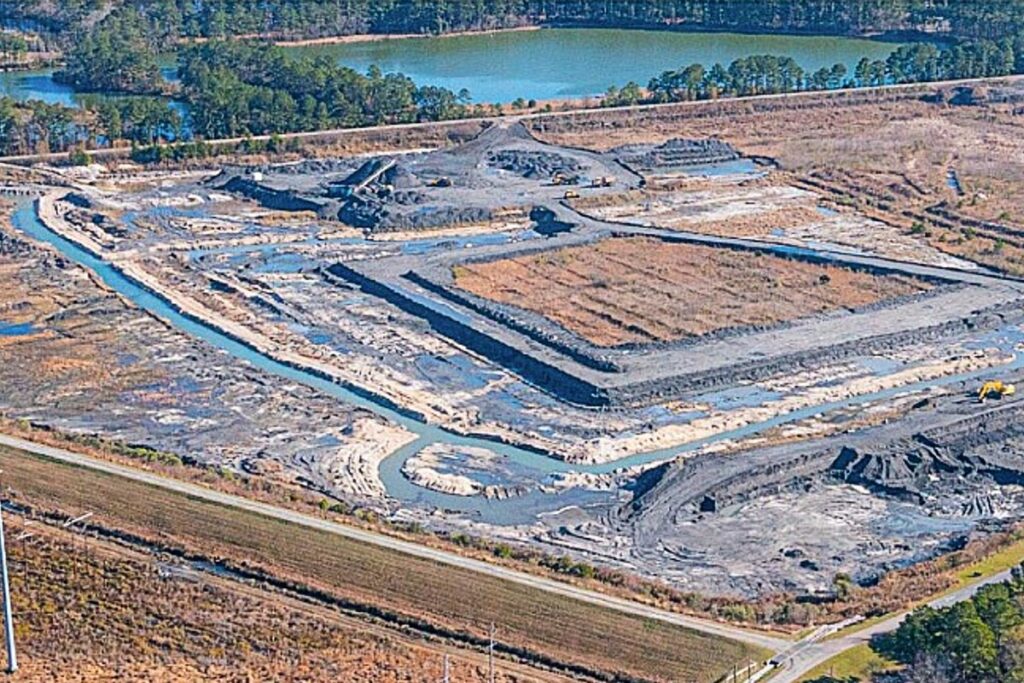
By Jack O’Toole | A controversial bill that promises to meet South Carolina’s growing energy needs by ramping up in-state power production is headed to the S.C. House floor next week with bipartisan support, despite fierce opposition from many of the state’s leading consumer and environmental groups.
The legislation, which is sponsored by GOP House Speaker Murrell Smith of Sumter, calls for the overhaul of the state’s regulatory system by reorganizing its structure and providing new legislative direction to commissioners, board members and staff. Moreover, it specifically directs the industry’s chief oversight body, the Public Service Commission (PSC), to expedite consideration of large-scale energy projects, including a 2,000 megawatt natural gas-fueled power plant at Canadys in rural Colleton County that Dominion Energy and state-owned Santee Cooper hope to have open by 2031.
Supporters say the bill will ensure that South Carolina – America’s fastest-growing state in 2023 and one of its largest per-capita energy users – has a secure, reliable energy supply for decades to come.
But opponents warn that it weakens consumer protections and could lead to higher utility rates.

Last week, the bitterness in the bill led PSC Commissioner Tom Ervin of Greenville to resign from the utility board in protest of the legislation.
“House Bill 5118 would remove important regulatory guardrails,” Ervin wrote in his resignation letter, “resulting in dramatic changes in existing law which will give investor owned utilities a blank check with guaranteed profits resulting in much higher utility rates for residential customers.”
The bill in brief
At almost 100 pages, the bill is notable for its scope and detail. Its major provisions would:
- Shrink the PSC from seven members to three and direct it to provide fast-track consideration for major projects.
- Greenlight the partnership between Dominion Energy and Santee Cooper at Canadys.
- Transfer the state Consumer Advocate’s office from the Department of Consumer Affairs to the Office of Regulatory Staff, whose mission includes ensuring the financial health of state utilities.
- Allow private conversations between electric utility representatives and their regulators outside of the presence of outside organizations or members of the public.
- Create a state Energy Policy Institute responsible for guiding and coordinating energy policy.
- Encourage next-generation nuclear power projects.
- Erect barriers to new solar projects by imposing additional licensing requirements and reducing the length of guaranteed solar contracts from 10 years to five.
‘Deja vu all over again’
Despite bipartisan amendments that allowed the bill to garner unanimous support in committee, opponents say the changes did little to address what they see as its worst elements.
 “We absolutely understand there’s a need for more energy generation,” S.C. League of Women Voters President Lynn Teague told Statehouse Report. “But the General Assembly should not be intruding on the decisions that are supposed to be made by state regulatory agencies.”
“We absolutely understand there’s a need for more energy generation,” S.C. League of Women Voters President Lynn Teague told Statehouse Report. “But the General Assembly should not be intruding on the decisions that are supposed to be made by state regulatory agencies.”
Of particular concern, she said, were a provision allowing utilities to meet with regulators behind closed doors, and the decision to put economic interests, rather than the concerns of ratepayers, at the heart of the regulatory process.
“When government grants a monopoly to utilities, it’s giving them a very big asset,” Teague said. “And it’s the state’s absolute responsibility to protect the public from abuse of that asset.”
Eddy Moore, a greenhouse gas emissions expert with the Southern Alliance for Clean Energy, shares those concerns but takes them a step further.

“What the common person needs to know is that the oil and gas industry is looking for a big expansion,” Moore said in an interview, “They’re coming for your wallet, and the way they’re going to get there is by putting the expense on your electric bill.”
South Carolina, he argues, would be playing into the fossil fuel industry’s hands by making large-scale investments in natural gas infrastructure, which would guarantee industry profits for the next 20 to 30 years, regardless of the cost to ratepayers.
Nevertheless, he said, “the core of the bill is to speed the regulatory approval of something like 9,000 megawatts of gas-fired power plants” – a legislative intervention he likened to 2007’s Base Load Review Act, enabled the V.C. Summer nuclear project that eventually failed and lost more than $9 billion. Ratepayers still are paying off the debt for the abandoned project put together by Dominion predecessor SCANA and Santee Cooper.
“Really, it’s like deja vu all over again,” Moore said.
But Dominion Energy spokesman Rhonda O’Banion said concerns being raised by many of the bill’s critics are “misleading and erroneous.”
“The fact is that the energy bill will ensure the regulatory process does not allow unnecessary and costly delays in the construction of natural gas generation that is needed to keep the lights on in a reliable, affordable and increasingly clean manner in South Carolina, which is the fastest growing state in the country,” O’Banion said in a statement.
Part – but not all – of the solution

Charleston-area Democratic Rep. Spencer Wetmore agrees the state needs significant new generating capacity, and believes the amended bill “does a lot of good.”
“But obviously,” she told Statehouse Report, “the sticking point for a lot of us is this major investment in natural gas.”
That’s not to say Wetmore is opposed to the use of natural gas as a part of the solution as the state continues to move toward renewables like solar and wind energy – she isn’t. In fact, she believes it will have to be “a part” of any reasonable solution.
“The question is does it have to be this large a part – almost the whole part – of the solution.”
And the answer, she believes, is clearly no.
“Other states are generating the exact same wattage we need with renewables paired with smaller bits of natural gas,” Wetmore said. “So we know it’s possible.”
- Jack O’Toole reports on statewide issues for Statehouse Report and the Charleston City Paper. Have a comment? Send to: feedback@statehousereport.com.
















 We Can Do Better, South Carolina!
We Can Do Better, South Carolina!
This bill is like removing the door to the henhouse and inviting the fox to enter and do “whatever the hell he wants”. It would put a screeching halt to any new solar fields and, just like VC Summer, will wind up with us ratepayers holding the bag if Canadys fails. This is just insane.
Manufacturing and big tech companies with massive servers require more than Chinese Windmills and solar panels to support their energy consumption. Politicians, and political environmentalists should look at what is happening to the whole state with progressive policies. We are losing our communities to the politically forced migration from the north.
It sounds like a wish list the industry put together and rammed through the GA. With a few crumbs for the part where they do their actual jobs.